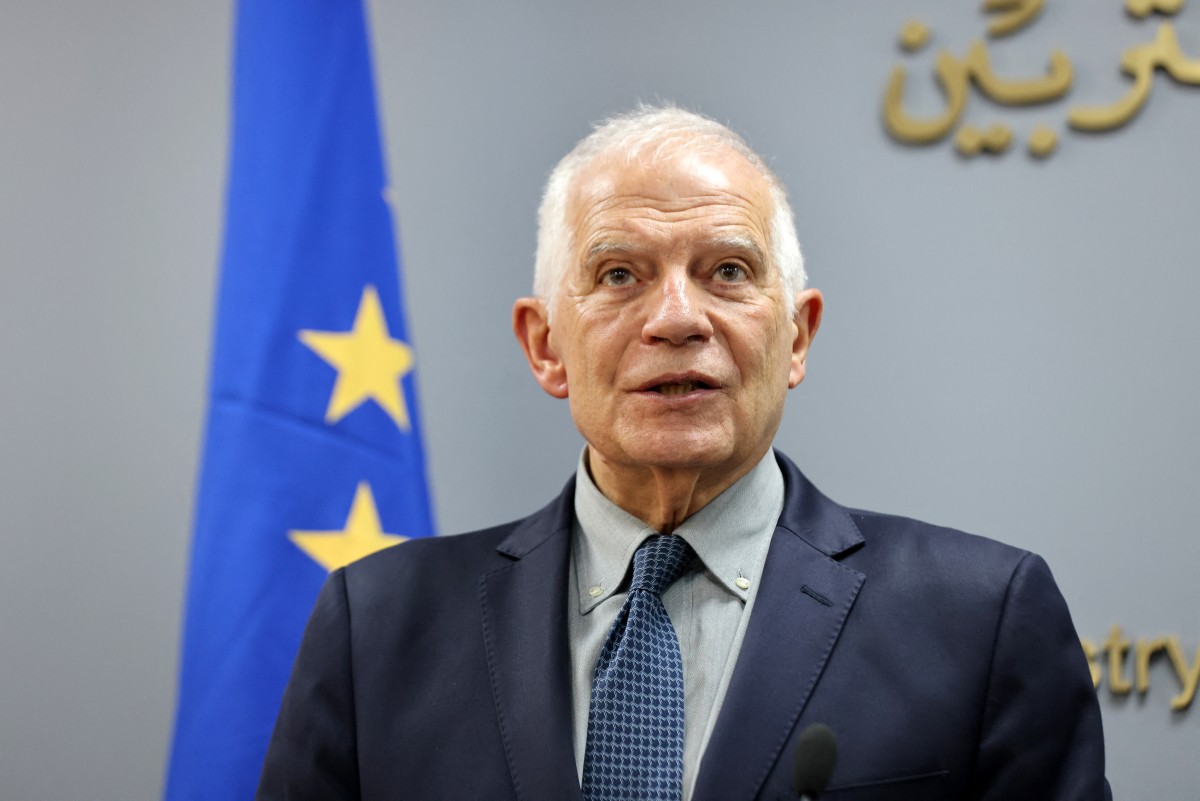Beirut, Lebanon— The European Union’s foreign policy chief met a political official of Iran-backed fighters group Hezbollah in Beirut on Saturday, as part of a push to avoid Lebanon being dragged into the Israel-Hamas war.
Josep Borrell held talks with the head of Hezbollah’s parliamentary bloc, Mohammad Raad, Lebanese media reported.
An EU source confirmed the meeting, which came hours after the group’s fighters fired a barrage of rockets at an Israeli military base in response to the killing of a senior Hamas figure in a suspected Israeli strike in Beirut on Tuesday.
The EU is “engaging in diplomatic dialogue with all relevant political representatives who have influence on the situation on the ground or have a stake in it”, the source said.
Speaking at a joint news conference with the Lebanese foreign minister, Borrell said: “It is absolutely necessary to avoid Lebanon being dragged into a regional conflict.
“I am sending this message to Israel too: nobody will win from a regional conflict.”
US Secretary of State Antony Blinken echoed Borrell’s comments on the Greek leg of a regional tour that took him on to Jordan on Saturday.
Blinken said he wants to make sure the conflict in the Middle East “doesn’t spread”.
“One of the real concerns is the border between Israel and Lebanon, and we want to do everything possible to make sure we see no escalation,” he added.
Shiite Muslim fighters group Hezbollah and Israel have exchanged near-daily cross-border fire since Hamas’s unprecedented October 7 attack on southern Israel, which triggered the war.
But a strike in Hezbollah’s south Beirut stronghold that killed Hamas’s deputy leader, Saleh al-Aruri, on Tuesday intensified fears of a wider conflagration.
A US defence official, who requested not to be identified by name, has told AFP that Israel carried out the strike that killed Aruri. Israel has not claimed responsibility.
Hezbollah said it had targeted the Israeli military’s Meron air control base with 62 missiles in its “initial response” to the killing of Aruri.
It said six of its fighters had been killed, without elaborating on the circumstances.
The Israeli army reported “approximately 40 launches from Lebanon” and said it struck Hezbollah “military sites” in response.
Hezbollah said six of its fighters had been killed on Saturday, without elaborating on the circumstances.
By the afternoon, warning sirens had sounded seven times in northern Israel, the military said.
Contacted by AFP, a military spokesperson confirmed the mountaintop base had been targeted but did not say whether it was damaged. There were no immediate reports of any casualties.
On Wednesday, Borrell had warned Aruri’s killing could “cause an escalation of the conflict”.
Nearly three months of cross-border fire have killed 181 people in Lebanon, including 135 Hezbollah fighters but also more than 20 civilians, including three journalists, according to an AFP tally.
In northern Israel, nine soldiers and at least four civilians have been killed, according to Israeli authorities.

